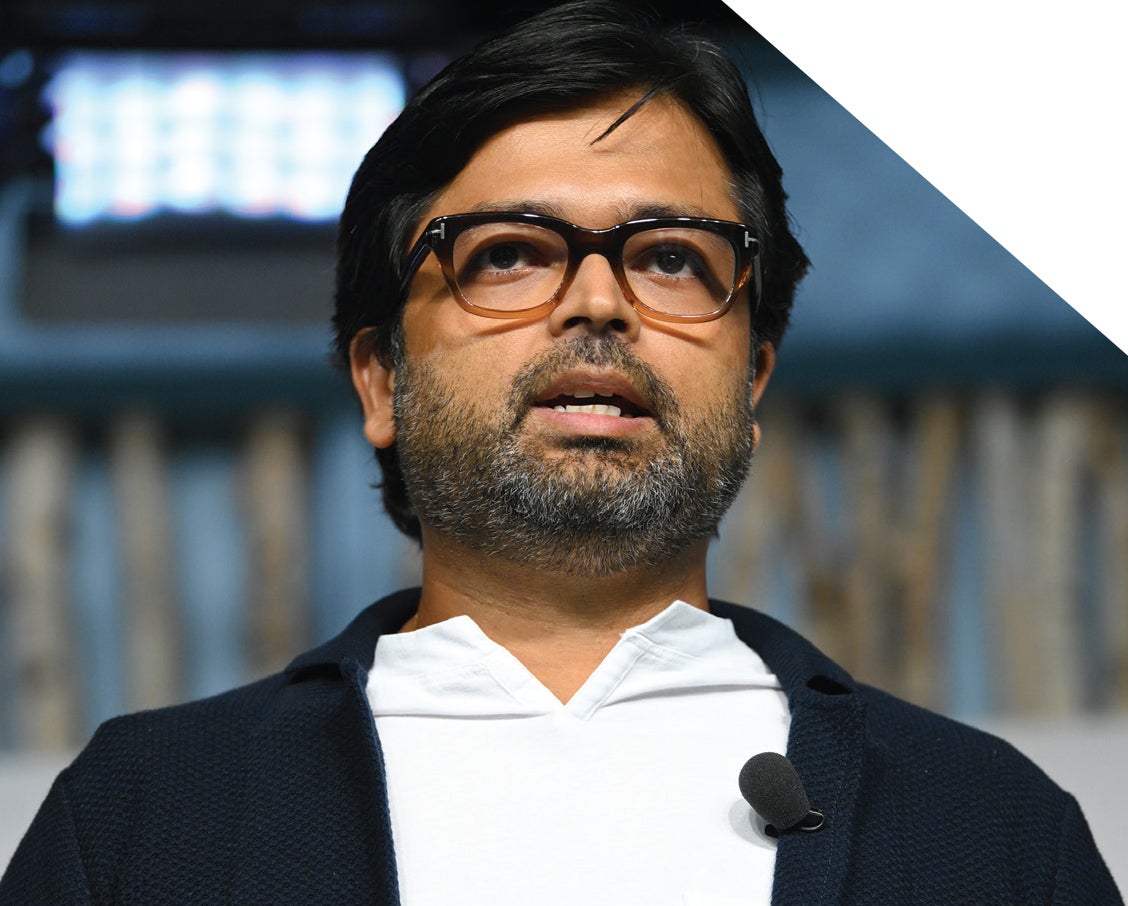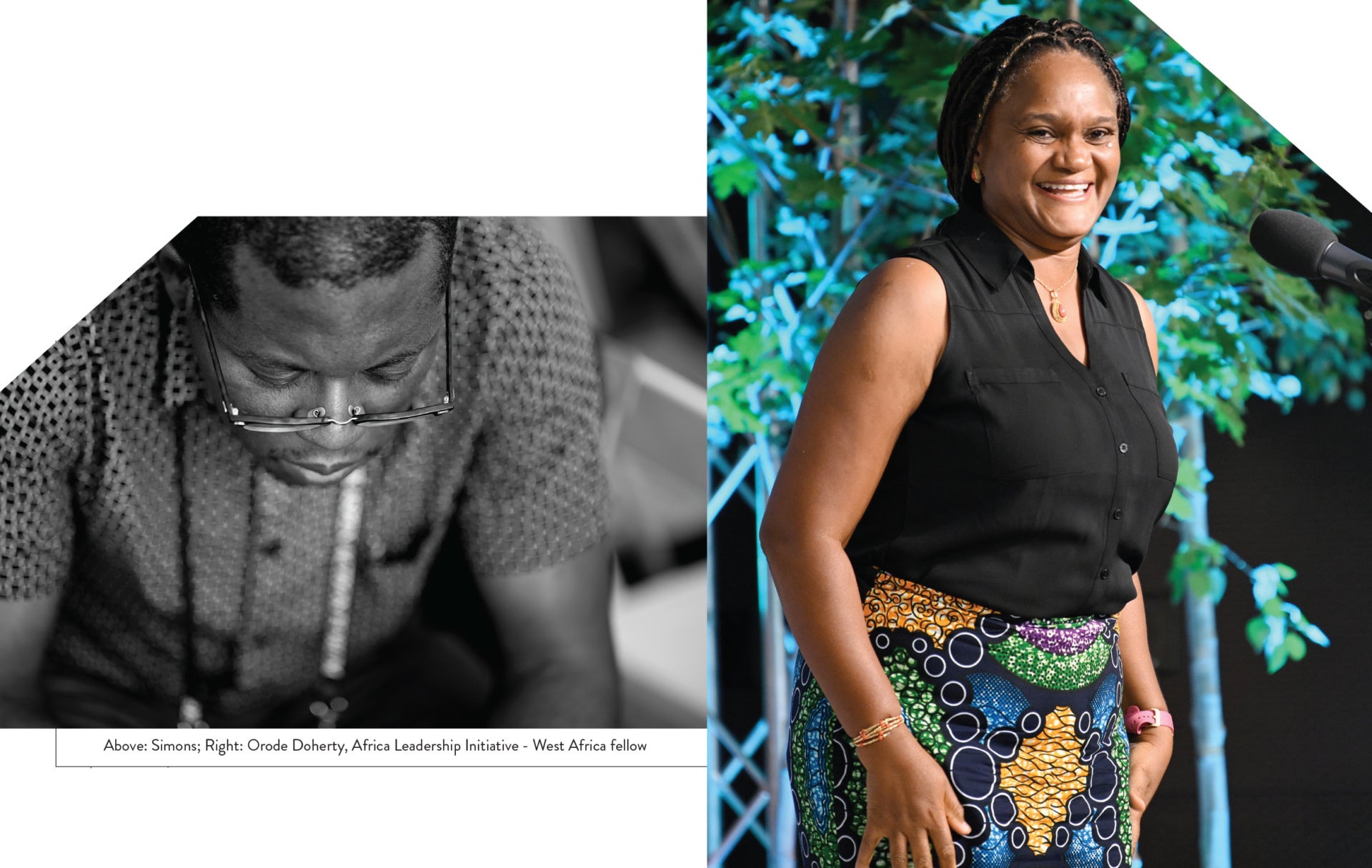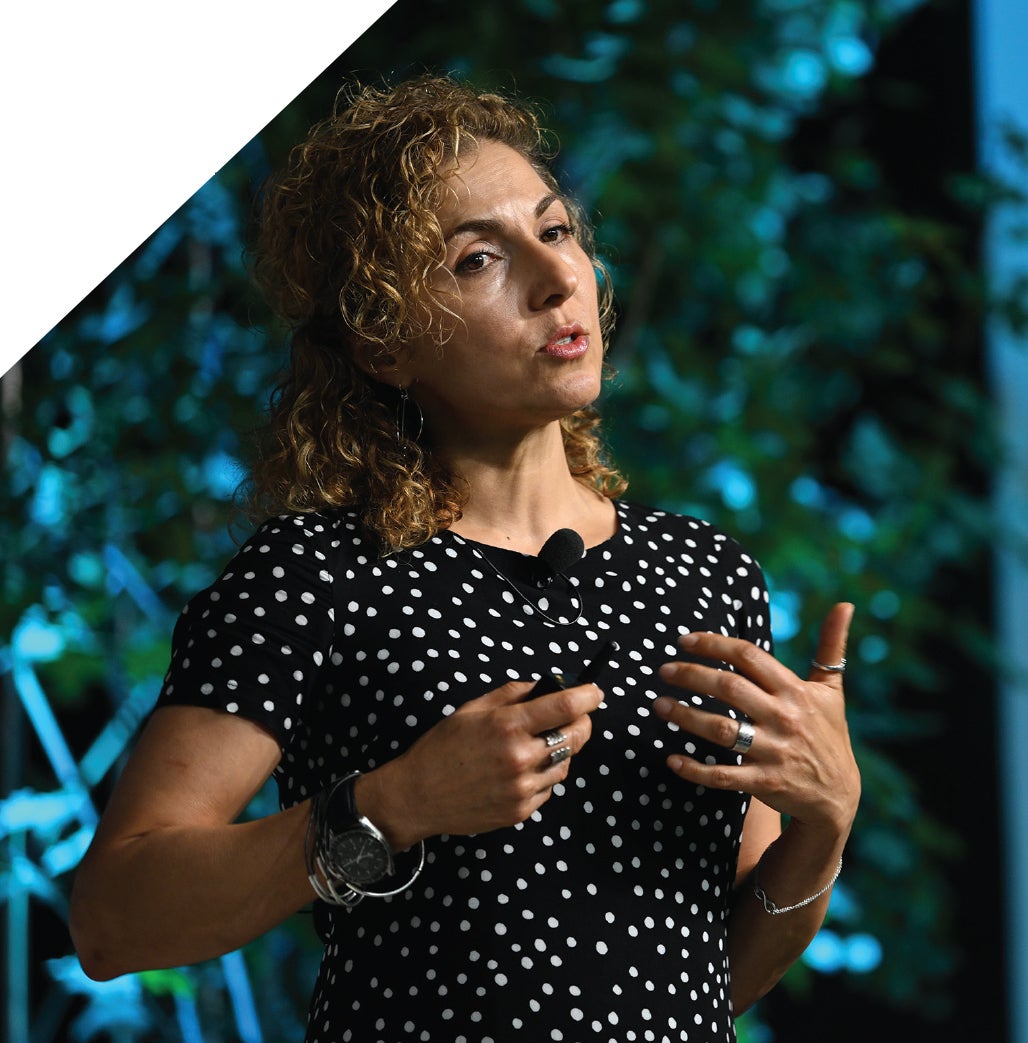This year’s Resnick Aspen Action Forum implored global leaders to consider what may lie beyond the limits they have constructed for themselves and others.
Every Every July, 350 leaders from more than 30 countries come together in Aspen at the Resnick Aspen Action Forum to reflect and recommit to improving the world. Everyone attending the week-long event has something in common: using the principles of values-based leadership learned in their Institute fellowship to make an impact in their communities. Fellows’ activities range from focusing on health inequities in the United States to empowering youth leaders in the Middle East. Fellowships give people the opportunity to examine their core values as leaders, act on their convictions through social impact ventures, and build relationships across the globe that hold them accountable.
 Whether it is Bright Simmons, who creates innovative technology to track the temperature of vaccines during shipment, or Srikumar Misra, who partners with rural farmers in Eastern India to transform their livelihoods, one thing is clear: these fellows know they’ve been key to solving issues in their community, and that Aspen Institute fellowships are their own key to personal and professional growth.
Whether it is Bright Simmons, who creates innovative technology to track the temperature of vaccines during shipment, or Srikumar Misra, who partners with rural farmers in Eastern India to transform their livelihoods, one thing is clear: these fellows know they’ve been key to solving issues in their community, and that Aspen Institute fellowships are their own key to personal and professional growth.

When it comes to solving issues in the business world, Jane Sun has just what her employees need. Sun, a fellow in the China Fellowship Program, is the only female CEO of an internet company in China. When China had its one-child policy, she paid the penalty fee for any employees who had a second or third child. She didn’t stop there. “I realized lots of females now are getting PhDs and master’s degrees overseas,” she said at a Leadership Beyond Borders plenary session. “When they return, they struggle between having children, having a family, and having a career. So we said that if you decide to have more options and freeze your eggs, our company will support you by paying for the cost.” Taking care of your employees, Sun emphasized, benefits the company in the long run.
 Anousheh Ansari, a Middle East Leadership Initiative fellow, became the world’s first female private sector space explorer to travel and stay onboard the International Space Station, in September 2006. “I like to prove people wrong,” Ansari said in a keyonte address, reflecting on her time as a child when she thought the chances of becoming an astronaut were slim. Ansari recalled looking at planet Earth through the window of the International Space Station: “You don’t see any lines. You don’t see any borders. There is nothing that divides us.”
Anousheh Ansari, a Middle East Leadership Initiative fellow, became the world’s first female private sector space explorer to travel and stay onboard the International Space Station, in September 2006. “I like to prove people wrong,” Ansari said in a keyonte address, reflecting on her time as a child when she thought the chances of becoming an astronaut were slim. Ansari recalled looking at planet Earth through the window of the International Space Station: “You don’t see any lines. You don’t see any borders. There is nothing that divides us.”
It was a perfect metaphor for this year’s goal: to discover what’s possible when you take down or examine the borders within and around you. “Borders and boundaries,” Dan Porterfield, the CEO of the Aspen Institute, said at the opening ceremony, “can prevent the dialogue, the contact, and the breakthrough that enables growth and harmony.”
John Simpkins, who was officially introduced at the forum as the Institute’s new vice president of the Aspen Global Leadership Network, told the group that his story of borders was relatable no matter which country or society you grew up in. The schools in his South Carolina hometown were integrated the year before he entered first grade, he said, and there was a sense that segregation was still the norm—“this notion that you don’t even need to erect physical borders, people just know.”
Each fellow at the forum makes an Action Pledge—a public commitment to direct their talents and resources toward a specific societal challenge with a clear time-bound goal. Since the inception of the forum, more than 1,200 pledges have been made. Tanya Mroczek-Amador, of the Central America Leadership Initiative, moved the room with her pledge: “I will empower Nicaraguans and freedom-loving partners to reunite 2,000 refugee families in Costa Rica by July 1, 2020.” Other fellows pledged improved access to healthcare in rural China, increased diversity across for-profit corporate boards, and cybersecurity training for thousands of internet users.
Fellows spent their days engrossed in seminars and taking breaks to listen to participants like former United Nations Under-Secretary General Olara A. Otunnu, who is working to change the systems in his home country of Uganda. “We see and think of the ugliness and evil in conflict situations,” Otunnu said, going on to explain that we don’t always notice the goodness and incredible sacrifices made by people in those same places. Looking for that goodness, he said, informs one’s outlook on peace and reconciliation. Late in the week, there was a performance of the play Borders, an emotional take on the refugee crisis in Syria. Ironically, one of the cast members could not perform, because he was unable to get a visa. The weight in the air was palpable as fellows discussed their reactions in the discussion that followed. When one fellow started to cry, conjuring memories of her own displacement, another silently changed her seat to hold her hand.
As the week drew to an end, the conversation turned to working together and maintaining faith in the vision of a better global society. David Langstaff closed the forum by reciting the poem “Come to the Edge” by Christopher Logue, which captured the hope and intent of the week’s programming and its impact on participants. Logue’s powerful words echoed the reason the forum was created in the first place. As Langstaff put it: “We recognize that it is not enough to focus solely on individual responsibility and transformation. We must encourage and enable collective action if we are to address systemic injustice.”